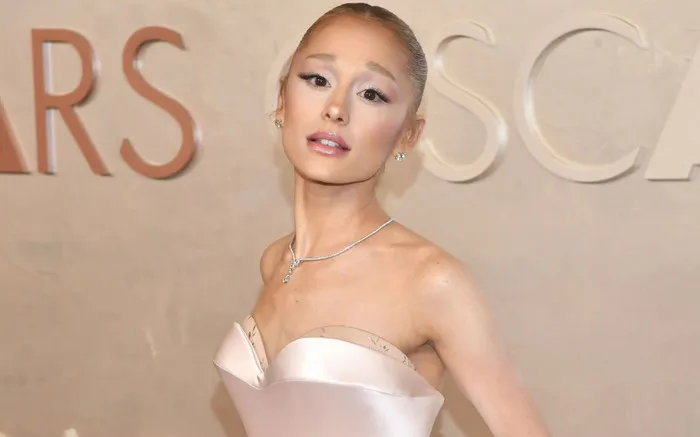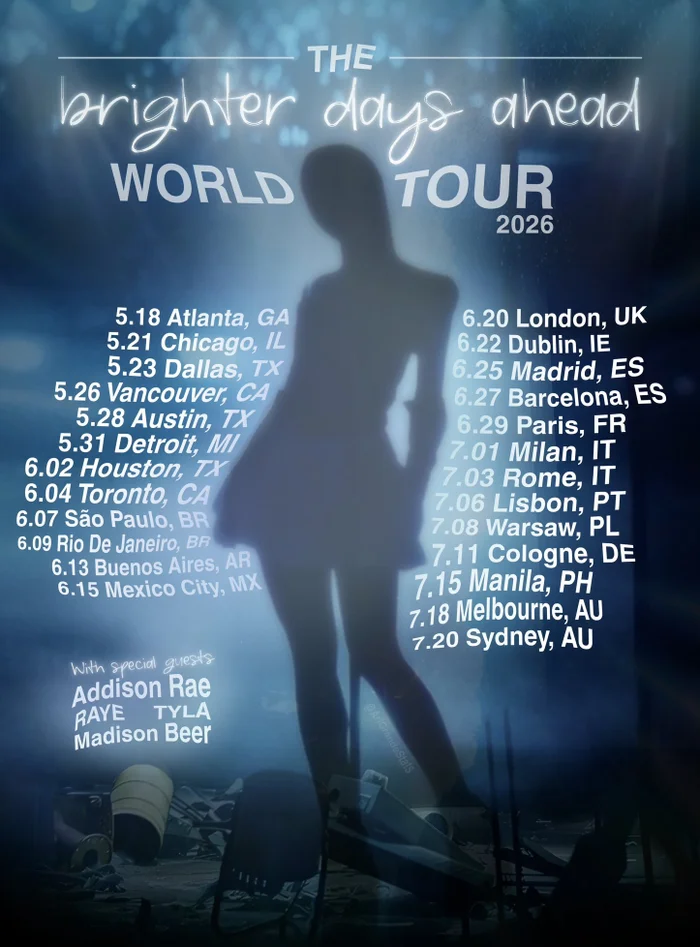

Fans in Frenzy Over Ariana Grande’s “The Eternal Sunshine Tour” Tickets
Ariana Grande, one of the most influential pop stars of the 21st century, has once again taken the world by storm with her “The Eternal Sunshine Tour”. Despite her careful planning and the addition of nine extra shows in the United States, tickets for this highly anticipated world tour sold out in under 30 minutes, leaving millions of fans frustrated and raising a heated debate about ticket accessibility, scalping, and the dynamics of modern live entertainment.
This ticket frenzy has not only highlighted Ariana Grande’s enduring popularity but also underscored structural challenges within the global concert industry, where demand often far exceeds supply. Fans have expressed outrage over secondary market prices skyrocketing to over $1.3 million (approximately 36 billion VND), sparking conversations about the ethics of resale platforms and the responsibilities of artists and promoters.
In this article, we dive deep into the ticket crisis surrounding “The Eternal Sunshine Tour”, exploring Ariana Grande’s comeback, the ticket scarcity phenomenon, the secondary market surge, and the reactions of fans worldwide.
Ariana Grande’s Comeback: The Power of Music
Ariana Grande’s presence in the music industry has remained formidable over the past decade. With multiple chart-topping hits, Grammy Awards, and a loyal fanbase known as “Arianators”, her influence extends beyond music to fashion, culture, and social media.
In her recent statements, Ariana emphasized the central role music plays in her life:
“It’s funny when people think that just because I’m busy with multiple projects, I’m going to step away from singing. Music is my lifeblood, and it always will be.”
This candid admission reflects a renewed dedication to her craft, signaling to fans that her upcoming tour is not merely a commercial endeavor but a heartfelt engagement with her audience. The “Eternal Sunshine Tour” is poised to reaffirm Ariana’s status as a global pop icon, bringing both nostalgia and innovation to her live performances.
Her comeback also coincides with the release of new music, including singles that have charted internationally. This timing contributes to heightened anticipation, fueling the demand for tour tickets and creating the conditions for a highly competitive sale.
The Ticket Crisis: Scarcity and Frenzied Demand
Despite adding nine extra shows, the total number of tickets available for the U.S. leg of the tour remained around 600,000, far below the global fan demand. This scarcity created a frenzied online ticket market, with millions of simultaneous attempts to purchase tickets, often resulting in website crashes, long virtual queues, and instant sellouts.

Factors Contributing to the Crisis
-
High Popularity: Ariana Grande has consistently drawn massive crowds, and her dedicated fanbase is known for its loyalty and quick response to ticket announcements.
-
Limited Venue Capacity: Choosing arena-sized venues with moderate seating increased the challenge, as fans flocked to limited-capacity spaces.
-
Digital Competition: Online ticketing platforms, while efficient, can be overwhelmed by spikes in demand, leaving legitimate fans frustrated and missing out.
The Secondary Market Surge
The ticket shortage led to a booming resale market, often referred to as the “scalper market”, where tickets were sold at exorbitant prices. Some reports noted resale values reaching $37,000 (1 billion VND) per ticket and, in extreme cases, up to $1.3 million (36 billion VND).
This phenomenon raises ethical concerns regarding ticket distribution and accessibility. Many fans felt disenfranchised, unable to afford the inflated prices, while scalpers and automated bots capitalized on the frenzy.
The Psychology of Fan Reaction
Fans reacted with a mix of disappointment, frustration, and outrage, expressing their experiences on social media platforms including Twitter, Instagram, and TikTok. Common complaints included:
-
Difficulty accessing official tickets due to site crashes.
-
Unrealistic resale prices on secondary platforms.
-
Limited venue capacity, which made it almost impossible for everyone to secure tickets.
The fanbase also engaged in campaigns urging Ariana’s team and her record label, Republic Records, to take action, highlighting the community-driven efforts to ensure fairer ticket distribution.
Industry Implications
The crisis surrounding Ariana Grande’s tour is not an isolated incident but rather reflects broader trends in the live entertainment industry.
Supply vs. Demand Dynamics
The fundamental imbalance between available seats and fan demand is at the heart of the issue. High-profile artists like Ariana often experience oversubscription, where millions of fans compete for a fraction of tickets. This scarcity inevitably fuels secondary markets and escalates prices.
The Role of Dynamic Pricing
One potential solution is dynamic pricing, where ticket prices adjust in real-time based on demand. While this method could mitigate scalping and better reflect market value, it remains controversial, as it may further price out some fans.
Venue Selection and Capacity Planning
Choosing arena venues with limited seating can create a sense of intimacy and high energy, but also limits access. Artists and promoters must balance fan experience, ticket accessibility, and revenue objectives to optimize tours.
Digital Infrastructure and Ticketing Platforms
The surge in demand underscores the need for robust, scalable ticketing platforms. Site crashes, virtual queues, and bot interference highlight challenges that require technological solutions, including anti-bot measures, pre-registration systems, and staggered sales.
Global Fan Community Reactions
Fans worldwide expressed solidarity, sharing experiences of missed opportunities and frustration. Online communities discussed strategies to avoid scalpers, including using fan presales, credit card verification, and subscribing to artist newsletters.
Social Media Highlights
-
Twitter threads revealed thousands of fans trying simultaneously to buy tickets, creating viral discussions about ticketing ethics.
-
Instagram stories shared screenshots of sold-out notices, alongside fan commentary on secondary market pricing.
-
TikTok videos captured the emotional rollercoaster of securing—or missing—tickets, generating millions of views and likes.
These reactions reflect not only the emotional investment of fans but also the influence of digital culture on live music experiences.
Lessons for Artists and the Industry
The Ariana Grande ticket crisis provides several insights for the music industry:
-
Fan Engagement is Critical: Transparent communication about ticket availability and strategies to prevent scalping can strengthen fan loyalty.
-
Technology Must Keep Pace: Ticketing systems must handle extreme demand, ensuring fairness and minimizing technical failures.
-
Tour Planning Requires Precision: Balancing venue size, tour dates, and ticket availability is essential to meet fan expectations without creating artificial scarcity.
-
Secondary Market Regulation: Collaboration between artists, promoters, and platforms can reduce unauthorized resales, keeping events more accessible.
The Future of Ariana Grande’s Tours

Despite the ticketing challenges, Ariana Grande’s The Eternal Sunshine Tour remains highly anticipated. Fans can expect:
-
A setlist combining classics and new hits, reflecting her growth as an artist.
-
Spectacular stage production, featuring advanced lighting, visual effects, and immersive experiences.
-
Opportunities to connect with her global fan community, whether attending in person or engaging through official digital channels.
Ariana and her team may continue adding shows or expanding venue capacities to meet demand, balancing exclusivity with accessibility.
Conclusion: The Ticket Crisis as a Mirror of the Industry
The frenzy surrounding Ariana Grande’s The Eternal Sunshine Tour highlights the tension between fan demand, limited supply, and the economics of live entertainment. While the singer has shown commitment to her fans by adding extra shows, systemic challenges remain, including ticket scalping, platform limitations, and venue constraints.
This scenario is not unique to Ariana Grande. It reflects broader industry trends where global superstars must navigate digital platforms, fan expectations, and market forces simultaneously. The crisis also illustrates the passion and dedication of modern fanbases, who expect not only access to performances but fairness and engagement from the artists they support.
Ultimately, the Ariana Grande ticket crisis underscores the need for innovative solutions, from dynamic pricing and venue planning to digital safeguards against scalpers. For fans, it is a lesson in persistence and community, while for the industry, it is a call to modernize ticketing systems and ensure equitable access to the world’s most sought-after performances.


















